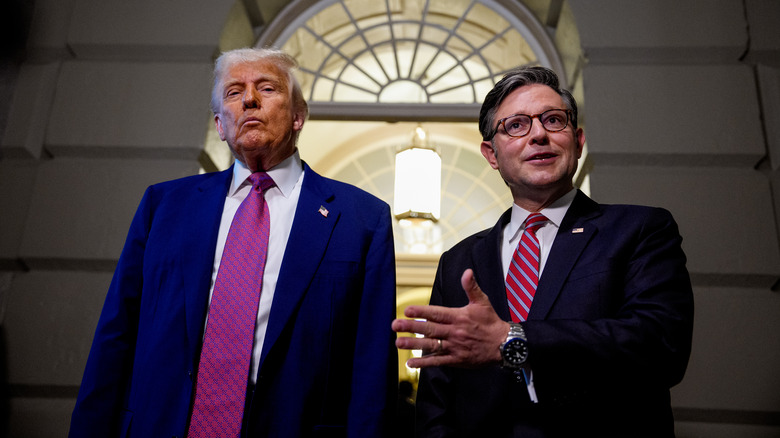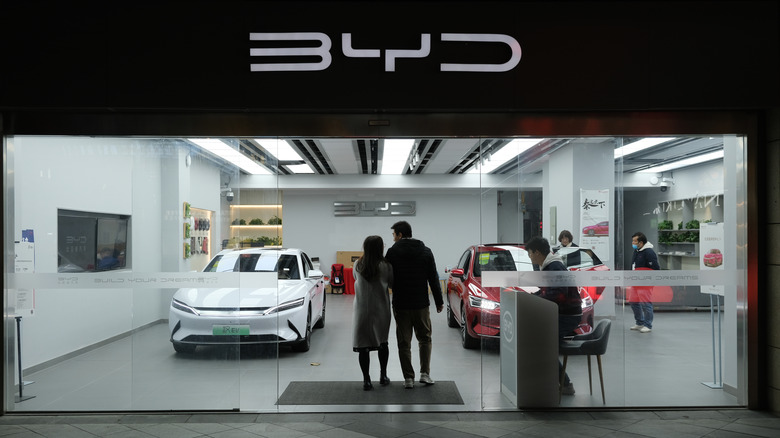
The big, beautiful spending bill is making its way through the big and maybe not so beautiful Congress and, unless a few senators grow spines, will end up on President Trump's desk so he can sign it with that big, beautiful Sharpie he loves so much. The House version basically kills both the $7,500 federal tax credit for new EVs and the $4,000 credit for used EVs. InsideEVs' Patrick George laments and summarizes the situation.
It's worth noting that the federal tax credits had already been modified by the Biden administration, when they were updated to favor U.S.-based EV production. So the trend over the past five years has been to move away from incentives on EVs not built in America, on the augment that pricy EVs were mainly being bought by affluent consumers who didn't need extra tax breaks.
We know from Norway's experience that taking away incentives can do serious damage to EV sales. This raises the obvious question: Is there a viable EV market without substantial government backing? China shouldn't really count in this analysis as the country's surging EV sales are clearly the result of a strategic industrial policy that appears to have been highly successful, but that might also require years of ongoing support.
 Andrew Harnik/Getty Images
Andrew Harnik/Getty Images
Proponents of continued U.S. government incentives for EVs point out the petrol-powered alternatives have long been subsidized by the nation's low federal gas tax, which hasn't been raised since the 1990s. That said, automakers have continued to innovate with internal-combustion technology because consumers like higher MPGs. It's also true that Tesla is the only EV manufacturer that actually figured out a way to profitably sell the vehicles in the States. Meanwhile, Ford's Model e division reported a $5-billion loss in 2024.
The core problem with continuing to subsidize the American EV market is that demand doesn't appear to be maturing as rapidly as it was supposed to. The case for incentives is to get sales to a level where a more robust and competitive EV market exists, then gradually withdraw them so that the traditional forces that drive business can take over. If you're a purist (or even a quasi-purist) you probably dislike that there was no end in sight to federal tax credits. Throw emission credits into the mix — something that Tesla has often sold to the tune of hundreds of millions of dollars, juicing profits in weak quarters — and your discomfort level rises.
 Robert Way/Getty Images
Robert Way/Getty Images
The big, beautiful bill is spectacularly stupid in many ways, but I'd be lying if I insisted that the EV reckoning should be further delayed. I used to work for an EV startup that got clobbered when Biden and a Congress controlled by Democrats juked credit eligibility the last time around, but our view was that we wanted people to buy our car because it was a great vehicle, not because they needed to knock $7,500 off their taxes. The political winds in America had been shifting against EVs long before Trump rolled into the Oval Office.
This is the entrepreneurial angle: you want your product to win because it's better. Admittedly, the established automakers have a different perspective; they're being asked to fund the risk of EV development with the money they're making on the legacy vehicles. To a degree, EV incentives compel them to sell cars that might not otherwise. Some critics of dropping the incentives are also worried that China, if unmatched, will gain a decisive advantage in EVs and batteries, but you have to ask them if Americans should surrender their business principles in response to abstract geopolitical fears.
My gut has always told me no. And if the big, beautiful bill becomes law, we're going to find out if the EV market in the U.S. can survive without government support.
















